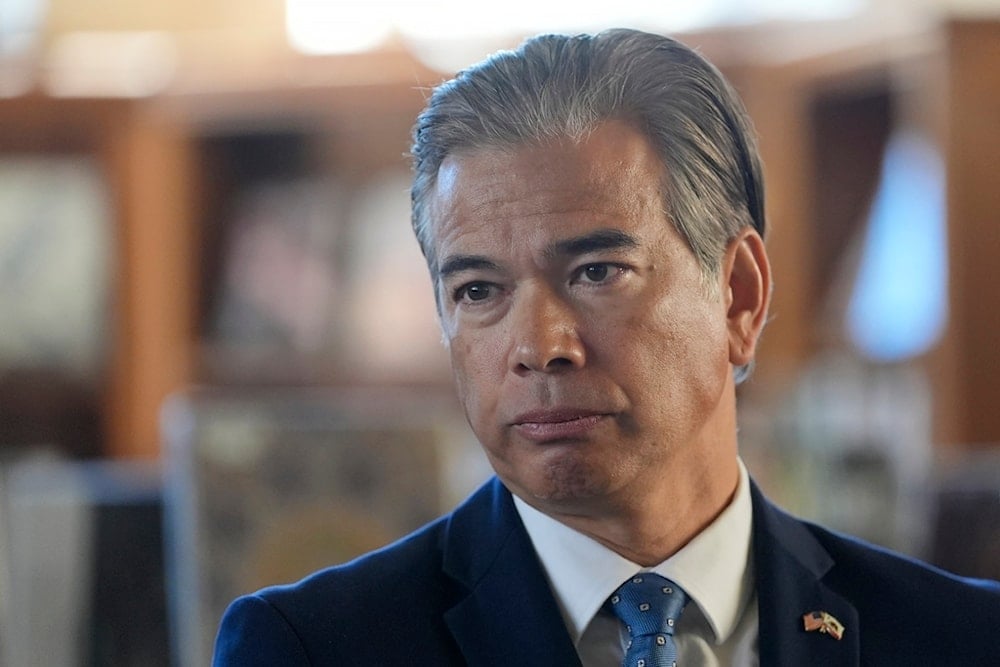Democratic states sue to block Trump's birthright citizenship order
The legal challenge, filed in federal court in Massachusetts, is being supported by a parallel lawsuit from the American Civil Liberties Union (ACLU) and other advocacy organizations in New Hampshire.
-

California Attorney General Rob Bonta speaks at a news conference at the San Francisco Public Library's Bernal Heights branch in San Francisco, Wednesday, December 4, 2024. (AP)
A coalition of 18 states, including California and New York, filed a lawsuit on Tuesday aimed at halting former President Donald Trump's executive order to end birthright citizenship in the United States. The legal action comes just one day after Trump took office and announced a series of immigration-related executive orders.
The most controversial of these orders seeks to eliminate automatic citizenship for individuals born on US land, a right enshrined in the 14th Amendment of the Constitution. If implemented, the measure would block the federal government from issuing citizenship documents, such as passports and certificates, to children born to mothers who are in the country illegally or temporarily, and whose fathers are neither US citizens nor permanent residents.
Birthright battle
California Attorney General Rob Bonta described the order as unconstitutional and harmful. "The president's executive order attempting to rescind birthright citizenship is blatantly unconstitutional and quite frankly, un-American," Bonta said at a press conference announcing the legal challenge. "We are asking a court to immediately block this order from taking effect and ensure that the rights of American-born children impacted by this order remain in effect while litigation proceeds. The president has overstepped his authority by a mile with this order, and we will hold him accountable."
The legal challenge, filed in federal court in Massachusetts, is being supported by a parallel lawsuit from the American Civil Liberties Union (ACLU) and other advocacy organizations in New Hampshire.
The 14th Amendment, ratified after the Civil War, was designed to secure the rights of former slaves and their descendants. It explicitly states, "All persons born or naturalized in the United States, and subject to the jurisdiction thereof, are citizens of the United States and of the State wherein they reside."
Read more: White House Spanish website removed following Trump's inauguration
Citizenship clash
Trump acknowledged that his order is likely to face legal challenges but defended the move as part of his broader immigration policy. "I think we have good grounds, but you could be right. I mean, we'll find out," he said when asked about potential legal opposition.
The executive order is set to take effect 30 days after its signing, though legal action may delay its implementation. Trump also repeated an inaccurate claim that the United States is the only country to grant birthright citizenship, despite many nations, including Canada and Mexico, having similar policies.

 3 Min Read
3 Min Read








